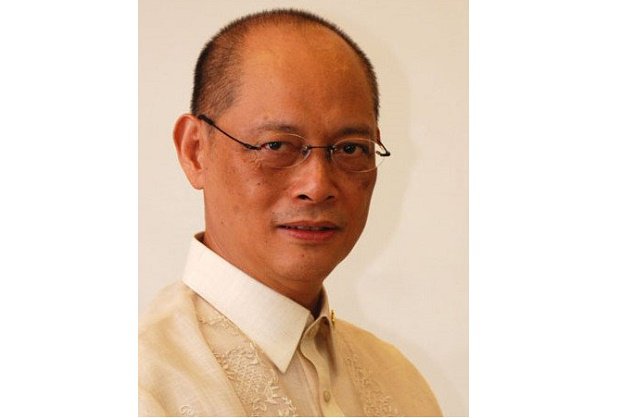
Department of Budget and Management Secretary Benjamin E. Diokno. SCREENGRAB FROM THE UNIVERSITY OF THE PHILIPPINES SCHOOL OF ECONOMICS WEBSITE
New Department of Budget and Management (DBM) Secretary Benjamin E. Diokno, 68, plans to reprise his role as a keen guardian of the government’s purse, vowing to correct past spending habits as he heads the agency that formulates and releases the annual budget under the Duterte administration.
Diokno headed the budget department during the Estrada administration, but stepped down in 2001 when then Vice President Gloria Macapagal-Arroyo took power. He then taught economics at the state-run University of the Philippines, where he was also a sought-after academic commenting on public finances.
At a recent workshop for businessmen and economic managers in Davao City, Diokno told reporters that the government planned to review the proposed 2017 national budget, even as he stressed there would be no reenacted budget in the next six years.
“We have enough time to review the budget to make sure that the 2017 budget is President Duterte’s budget,” Diokno had said. The administration of former President Benigno Aquino III has already started to formulate the proposed P3.5-trillion budget for next year.
Diokno said the annual budget of the Duterte administration would prioritize higher public expenditures on vital infrastructure, equivalent to 5-7 percent of the gross domestic product.
“The Duterte administration will not spend money for spending’s sake. The economy is deficient in all types of infrastructure—highways and bridges, ports and airports,” Diokno said.
And in a recent e-mail to the Inquirer, he vowed to end underspending on public goods and services, which tempered the country’s growth potentials in the past two to three years.
“First of all, I will put a lot of effort in budget preparation. I know that underspending is partly due to poor budget preparation. Many programs and projects are included in the annual budget, yet they are not ready to implement. Some departments ask for a budget that they are unable to implement: they bite more than what they can chew,” Diokno said.
Noting that underspending is due to the “ineptness or incompetence” of some department chiefs, Diokno said he would ask secretaries and undersecretaries to undergo retraining, while a program to boost project monitoring would also be strengthened.
He said he would also do away with the practice of allowing fiscal planners to “play around with the slacks in the budget” to finance projects not authorized by Congress, in a controversial practice by the past administration that became known as the Disbursement Acceleration Program, or DAP. The Supreme Court in 2014 ruled DAP was unconstitutional.
“This practice has to stop. President Duterte’s 2017 to 2022 budgets will be compliant with the Supreme Court decision on the DAP,” Diokno said.
Moving forward, he said the annual budgets to be proposed by the Duterte administration would prioritize the following: higher infrastructure spending of 5-7 percent of the GDP; investment in human resources (education, healthcare and nutrition) in order to develop a dynamic and nimble work force; agriculture modernization and rural development in order to make growth inclusive; raising rural incomes; and making food available and affordable.
Diokno, however, said the new administration would follow the Aquino government’s move in adopting the General Appropriations Act (GAA) as release document. The DBM adopted the GAA as a release document in 2014, scrapping the special allotment release order system.
“This is not novel. I did this 16 years ago when I adopted the ‘what-you-see-is-what-you-get’ budget execution system. However, this was forgotten by [former President Gloria] Arroyo during her entire term and [President] Aquino during his first [few] years in office,” Diokno said.
Diokno also said that on his watch, the DBM will “revisit” the bottom-up budgeting (BUB) scheme, another program introduced by the Aquino administration that allows local governments as well as civil society and community groups to pitch the priority poverty-reduction projects to be bankrolled by the annual national budget.
Also, the Duterte administration “will revisit the CCT [conditional cash transfer] program with the intention of minimizing the leakages (giving benefits to those undeserving and not giving benefits to the deserving) and minimizing the administrative costs,” Diokno said, referring to the Pantawid Pamilyang Pilipino Program or “4Ps.”
“We will adopt economic measures so that a bigger part of the budget will be used for projects that will truly benefit the Filipino people,” he said.
During his first tenure as budget chief, Diokno initiated reforms that included strengthening of the public expenditure management system. He also imposed a moratorium on the creation of new state universities and colleges, and pushed for the abolition of several agencies.
And to improve strategic budget planning, he initiated a joint public-private sector consultative group called the Budget Dialogue Group.
Among his specializations is public economics focusing on governance, tax reform and policies, expenditure analysis. He has also given policy advise on transitional economies in Southeast Asia. In resource management, he specialized on public policy concerning oil and water resources.
He served as budget undersecretary to President Corazon Aquino until March 1991, during which he was involved in the creation of the 1986 Tax Reform Program that significantly improved collection. He was also involved in drafting the Local Government Code of 1991.
Diokno obtained a public administration degree from the University of the Philippines in 1968. But he is a holder of five postgraduate degrees, including a Ph.D. in economics from Syracuse University’s School of Citizenship and Public Affairs, and a master’s degree in political economy from Johns Hopkins University.